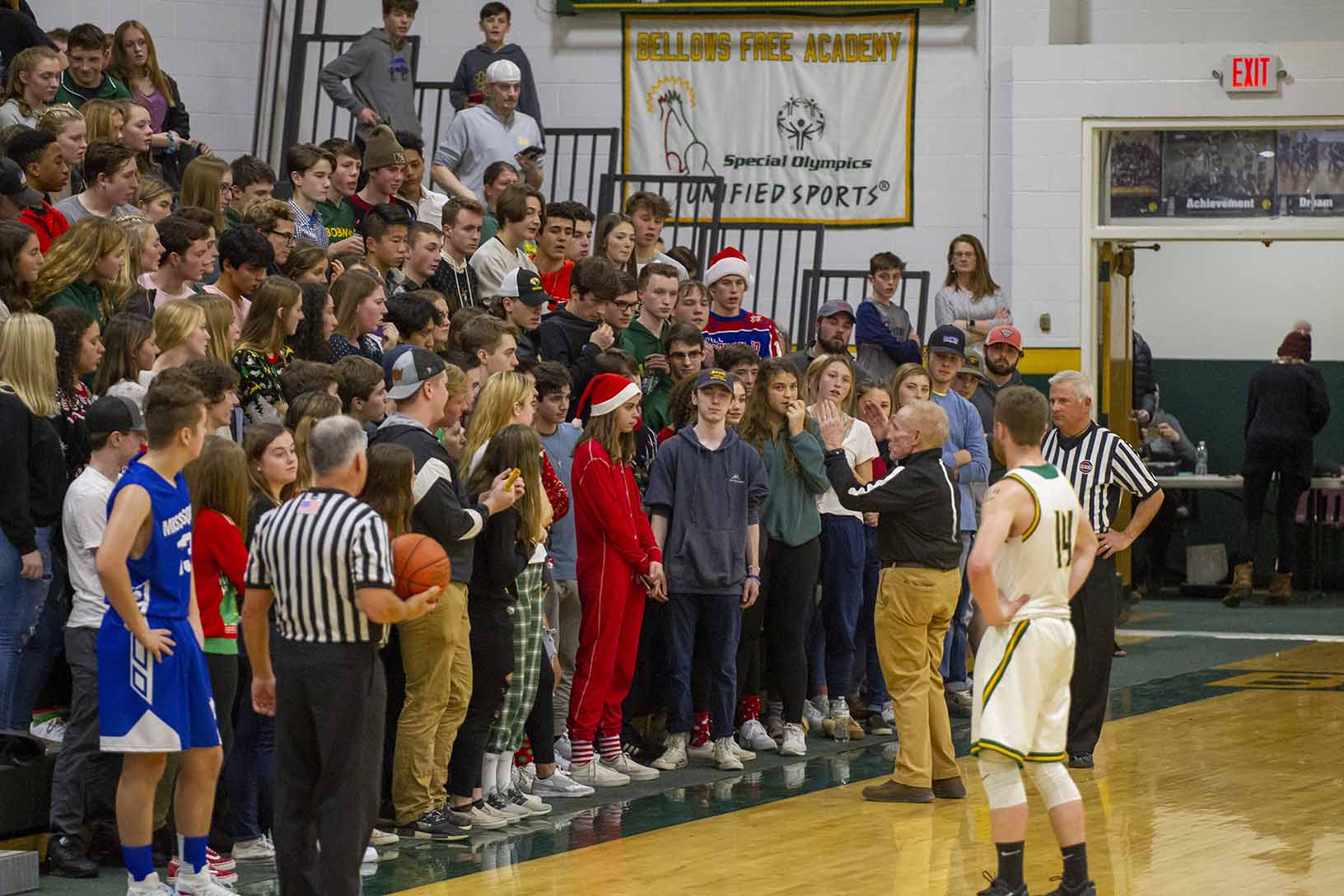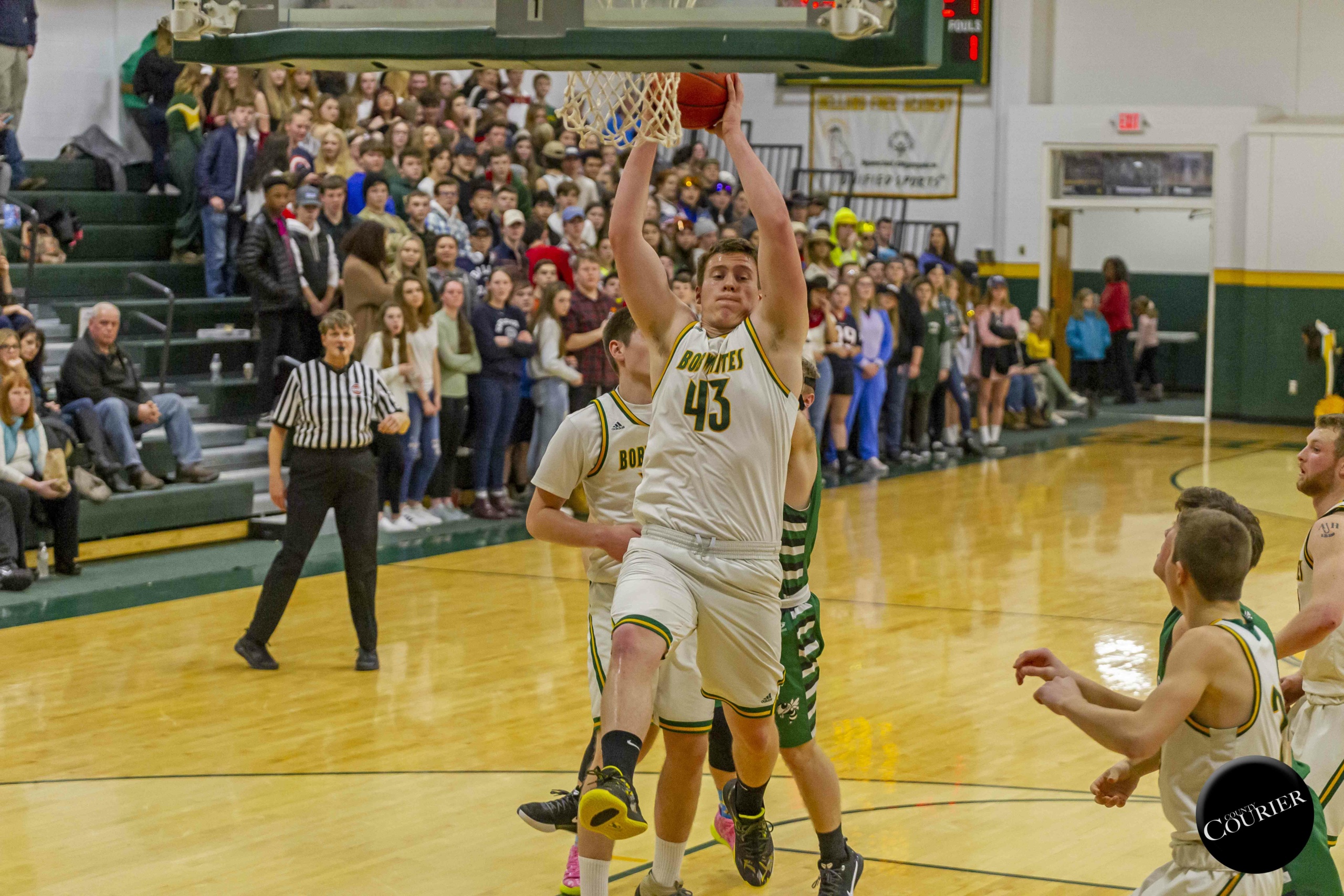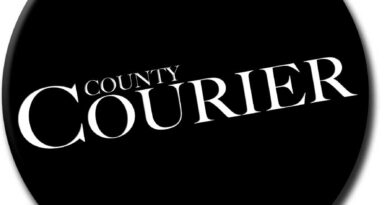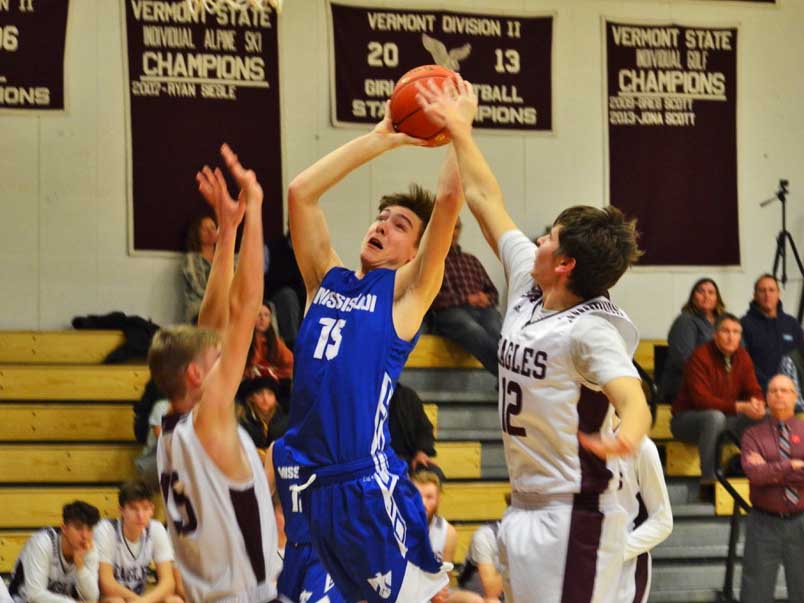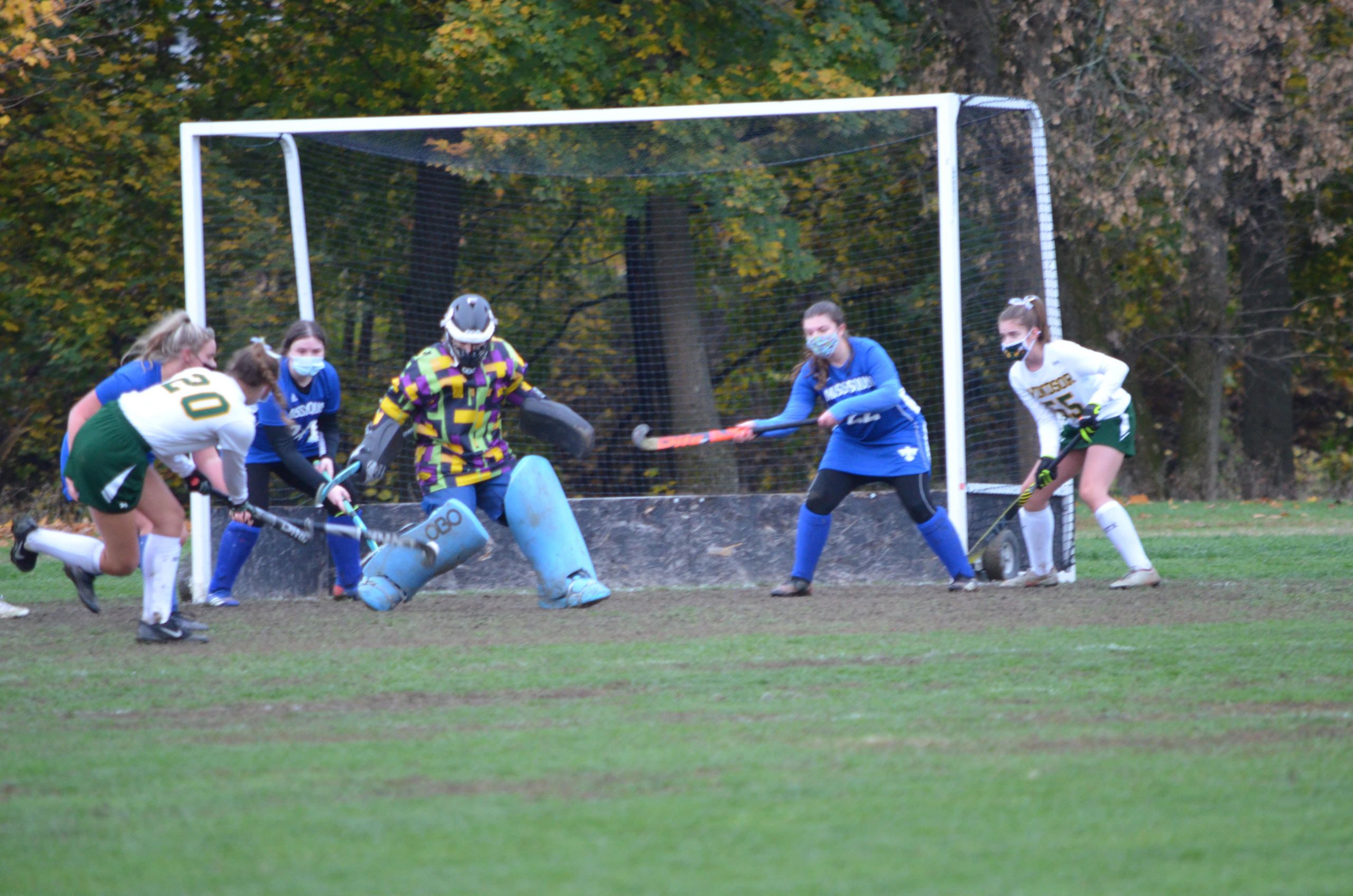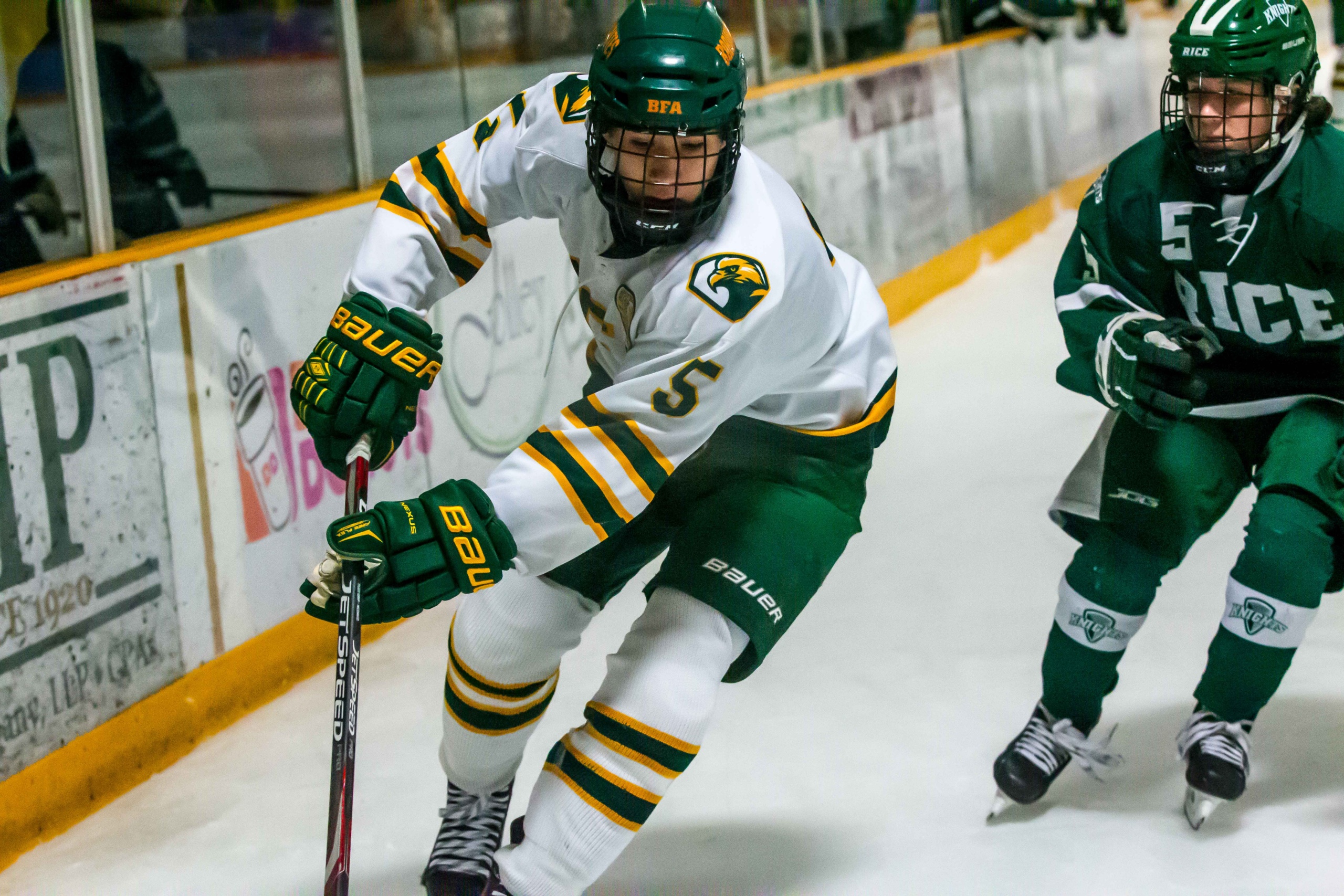FAN BEHAVIOR AMONG TOP CULPRITS IN REFEREE SHORTAGE
By Ben Kaufmann
County Courier
Syncing with a trend across the country and across most sports, Vermont finds itself with a shrinking pool of certified officials to referee junior varsity and varsity basketball. Though not the only source of blame, an erosion in spectator behavior seems to be the most significant factor in the struggle to recruit new officials.
Basketball is further from the officiating crisis point than some sports, especially girls’ lacrosse, and field hockey, already face. Still, the number of available officials is headed in the wrong direction with no explosion of young folks eager to don stripes and a whistle appearing on the horizon.
Refereeing is not for the faint of heart and by nature is a role open to criticism. Of the dozens of calls made each game, most upset one side or the other. Dan Shepardson, a longtime official and current rules interpreter for the Vermont High School Basketball Officials’ Association, says the job is intimidating.
[AdSense-C]
“It’s the only vocation where on the first day you’re expected to be perfect and then expected to get better from there,” Shepardson said. “It’s not reasonable.”
Those expectations become most daunting in vocal criticism from fans and parents. Referees expect a certain amount of challenge from players and coaches and have tools such as warnings and technical fouls to curb excessive complaints from game participants. There is less recourse for spectators, who are typically admonished only if their criticism becomes abusive.

Fewer tools for crowds
Shepardson says fans’ sense of entitlement frustrates officials the most. Parents who pay for travel AAU teams expect to bring that same input into the public school sports system, to the endless irritation of coaches and referees. Oftentimes, those complaining loudly are misinformed to begin with.
“People think they know the rules and a lot of what you hear is those urban myths,” Shepardson said. “People will yell for an over-the-back but there’s no over-the-back foul. There’s on-the-back but that’s different. There’s no foul for reaching but parents will yell, ‘Call the reach!’ Coaches tell kids not to reach because that can lead to contact; that’s where the foul is.”
Vermont basketball officials are required to undergo more rigorous training than those in many other sports. Potential referees receive at least 20 hours of instruction on rules of the game and must score higher than 85% on a closed-book test to become certified.
[AdSense-B]
Officials quickly learn to focus on the job and not the atmosphere around the game.
“We try to teach them to work on the rules and to get them right and not to worry about the fans, but it’s a tough dynamic,” said referee Rob Green, who offers an annual training class for interested officials in the St. Albans area but didn’t receive sufficient interest to host one in 2019.
Green said there is no cookie-cutter policy for dealing with rowdy fans and didn’t want to comment beyond saying he and his fellow officials address any incident on a case-by-case basis.
Typically, if spectator behavior is beginning to cross the line, an official will alert the site administrator — usually the host school’s athletic director — and request assistance. Athletic directors are best equipped to deal with problem behavior and usually also are the ones responsible for addressing serious offenders. But ADs are responsible for dozens of tasks at games and can’t spend lengths of time monitoring crowds. Additionally, their authority over students doesn’t extend quite the same way to parents.
“About the only people I really have any control over are the kids,” said Enosburg Athletic Director Chris Brigham. “I spend a lot of time with them on not taunting the other team, not taunting the referees — cheer for your team. That’s a hard one to get through sometimes but they get it after a while.”

Driven by passion, not money
Asked what would draw a young person into officiating, Brigham matter-of-factly responded that it has to be a love of the game rather than money. Varsity officials make $75 per game; which depending on travel usually means $15-$20 an hour with arrival expected an hour before tipoff.
That money is no pittance, but may not be enough to entice someone to undergo the guaranteed harassment officials face.
“If you’re not all in you’re going to quit,” said Shepardson, noting that the job offers challenges beyond the criticism. “It’s a lot of time away from the family, during prime time, mealtime, for about $15 an hour. The fans are part of it but I wouldn’t say that’s the number one reason.”
Most officials would likely agree with Shepardson that fan behavior isn’t the biggest reason referees retire. After all, once officials have survived a season or two, they must feel some level of comfort in their ability to absorb criticism. Age is the biggest reason for retirement; one can’t run with 17-year-olds forever. But when it comes to recruiting new officials, the treatment of referees is the most obvious obstacle.
[AdSense-A]
“A big deterrent would be the hostile crowds,” said MVU girls basketball coach Moses Powers. “It’s tough to be able to take that much criticism and referees do it all the time.”
Powers’ comments came after a 29-27 defeat to Colchester on Saturday in a contest between two rebuilding teams unlikely to go deep into the playoffs. But even from the sparsely populated bleachers, audible complaints rained down after most foul calls.
Head down I-89 for a Rice vs. Burlington boys’ game and you’ll witness the exponentially worse treatment of officials.
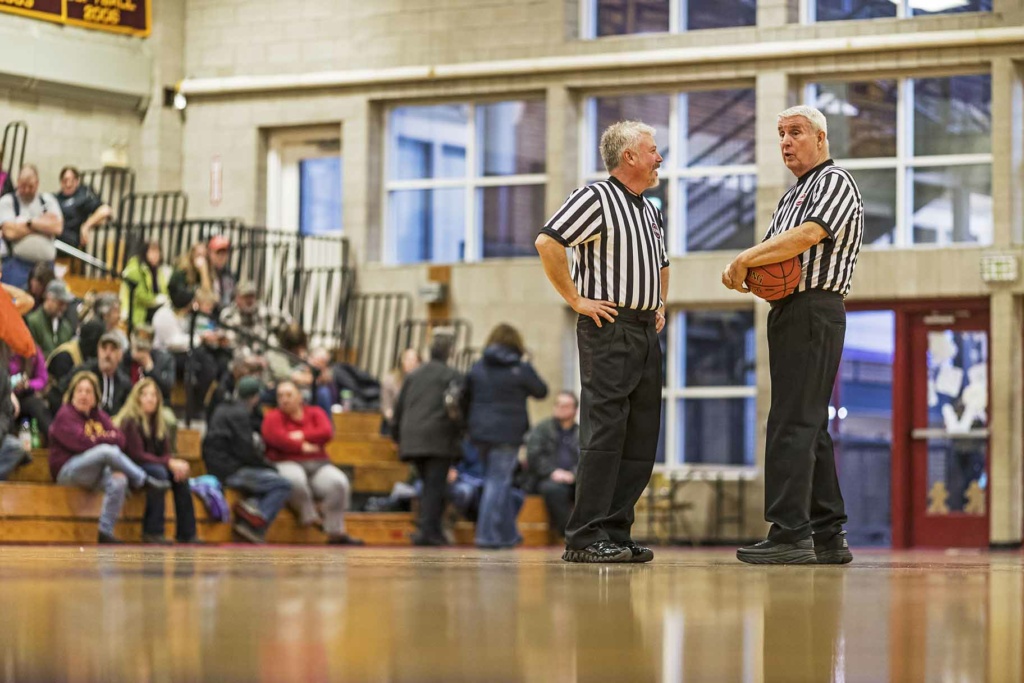
Perspective lacking
Jay Nichols is the Executive Director of the Vermont Principals’ Association, which oversees high school sports in Vermont. He confirms that the VPA sees the negativity surrounding officials but is optimistic about efforts to curb issues and attract new officials.
“Officials often grow sick of the entitlement that some fans have at games and the blatant disrespect that is sometimes shown,” Nichols said. “They don’t get paid a lot of money and on every close call, a certain percentage of the audience is going to think they blew it. We will quite often get comments here at the VPA from fans who talk about how an official favors ‘the other team,’ so this is something we hear about. Every association is different and I know many are trying to recruit fresh blood into the field.”
Schools and organizations urge respect for officials with signs and announcements but — even in the only state to never produce an NBA player — reason and measured expectations are often ignored when the action starts.
Shepardson noted that thanks in part to later start times for winter sports, basketball is in less trouble than some fall and spring sports. There is still a need, but more people can make 5 or 7 pm games than the 4 pm start times in spring and fall.
For anyone interested in becoming an official, Shepardson said, there are multiple options and encourages anyone considering it to take a shot. The Vermont Principals’ Association website (www.vpaonline.org) has links on information about becoming a sports official. Or one can just ask any varsity official for guidance.
MVU Athletic Director John Lumsden says the key in helping basketball and other sports avoid the full-blown crisis facing girls’ lacrosse — which has had to cancel games in recent years due to a lack of officials — is to get young people involved in officiating by any means necessary.
“It is going to be difficult but I think we have to sometimes think outside of the box as far as what we can do to get some of those young people in here to fulfill those needs of full-time officials at the JV and Varsity level,” Lumsden said.
Of course, the most outside-of-the-box change would be to simply cheer on local student-athletes and let referees do their difficult job in relative peace.
Barring that, Shepardson said that in his role as CVU Activities Director he reminds spectators that they are impugning the reputation of the school and often makes an offer that he is never taken up on.
“I tell them that if they think they can do better they’re welcome to try,” Shepardson said. “We always need more officials.”


